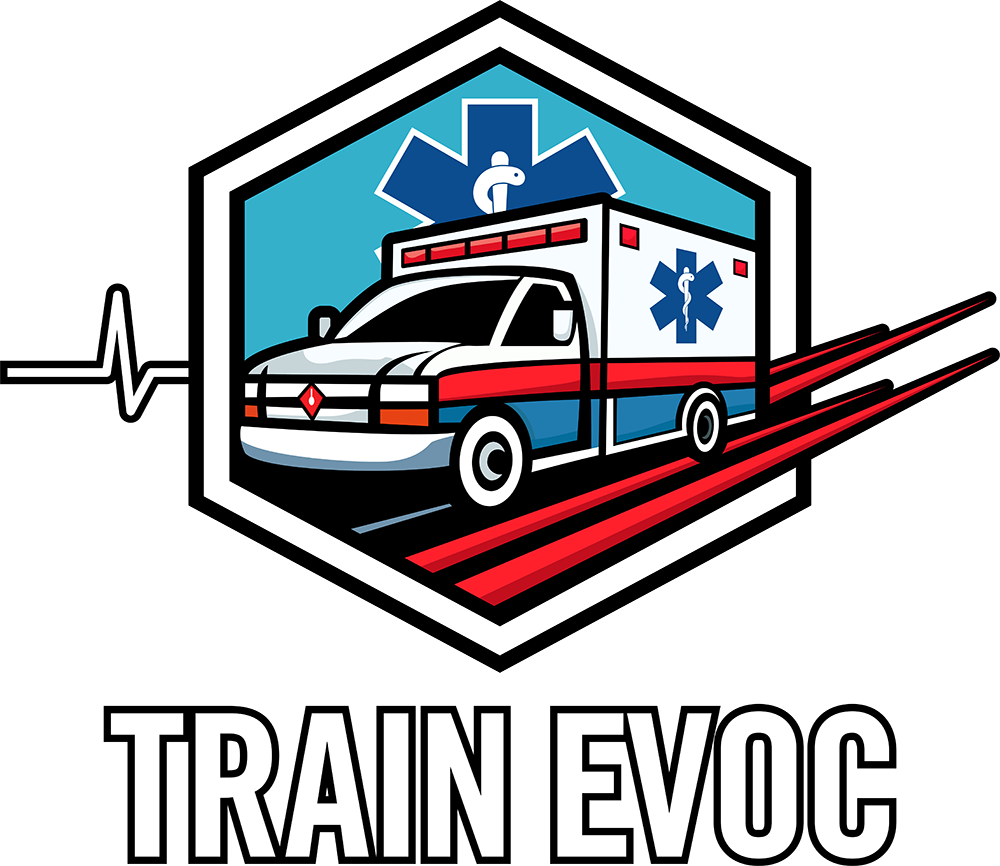EVOC certification is a mandatory requirement for anyone looking to operate an emergency vehicle in the state of Florida. Every department in the state now requires individuals to have one in order to apply to a first responder position. But how do you get certified, and what’s the best way to do it?
Step 1: Meet the Eligibility Requirements
Before enrolling in an EVOC course, you must meet these basic requirements:
- Be at least 18 years old
- Possess a valid driver’s license
That’s it! Unlike other certifications, Florida has no additional state-mandated prerequisites. If you meet these two conditions, you’re eligible to enroll. Many first responders start their careers without realizing that an EVOC certification is a non-negotiable requirement for most agencies. Getting certified early gives you a competitive advantage when applying for jobs.
Step 2: Choose Your EVOC Training Format
When selecting an EVOC course, you have two main options:
Option 1: Traditional In-Person Training
Most local fire academies offer EVOC courses, typically structured as:
- One full 8-hour day of classroom instruction
- One 8-hour driving session for hands-on training
This method provides direct instructor guidance and is great for those who prefer a classroom setting.
Option 2: Hybrid Programs
Some programs allow students to complete the classroom portion online and only attend the in-person driving assessment. This is a great option if you have a busy schedule but still want hands-on training.
Which option is best?
- If you learn best with in-person guidance, go traditional.
- If you need flexibility, go hybrid.
Either way, both paths lead to full certification.
Step 3: Complete EVOC Training
Regardless of the format you choose, EVOC courses cover critical emergency driving skills, including:
- Emergency driving principles (vehicle dynamics, maneuvering at high speeds)
- Florida laws & regulations for emergency vehicle operators
- Collision avoidance techniques
- Pursuit and response driving tactics
In a recent study by the National Highway Traffic Safety Administration (NHTSA), ambulance crashes caused nearly 1,500 injuries per year due to improper emergency vehicle handling. EVOC training is designed to prevent these accidents by teaching proper high-speed maneuvering and defensive driving techniques.
What Happens During the Driving Assessment?
Your hands-on driving test will assess:
- High-speed braking operations
- Cornering and turning techniques
- Defensive driving maneuvers
- Emergency response scenarios
Step 4: Pass the EVOC Certification Exam
To earn your EVOC certification, you must pass two exams:
- Written Exam – A multiple-choice test covering emergency vehicle operations, laws, and safety.
- Driving Assessment – A practical driving test that evaluates your ability to operate an emergency vehicle safely.
Both exams must be passed to receive certification.
How to Prepare:
- Review all course materials.
- Take practice tests if available.
- Get comfortable with emergency driving techniques before test day.
Did You Know? According to the Florida Department of Transportation, failure to yield to emergency vehicles is one of the top causes of responder accidents. That’s why understanding emergency vehicle laws is a major focus of the written exams.
Step 5: Obtain Your EVOC Certification
Once you pass both exams, you will receive an EVOC Operator Certification, which is valid for four years. This certification allows you to legally operate emergency vehicles in Florida and apply for positions that require EVOC credentials.
Quick Tip: Some departments reimburse EVOC training costs for recruits, so check with potential employers before paying out of pocket.
Step 6: EVOC Certification Renewal
Your EVOC certification expires after four years. To stay certified, you must:
- Take a refresher course
- Pass an updated written and driving assessment
Check with your training provider for renewal options before your certification expires to avoid any lapses.
Additional Considerations
EVOC Certification Levels
There are two levels of EVOC certification:
- EVOC Operator Certification – Required for employment as a firefighter, EMT, or paramedic.
- EVOC Instructor Certification – Required to teach and award operator certifications (requires additional training).
Does Florida Accept Out-of-State EVOC Certifications?
No, Florida does not accept EVOC certifications from other states. Florida’s programs either follow or exceed the VFIS (Volunteer Fire Insurance Services) and/or the Department of Transportation (DOT) curriculum. If you’re moving to Florida, you will need to complete an EVOC course that follows one of these approved curriculum’s to become certified.
Getting your EVOC certification in Florida is straightforward but essential for anyone pursuing a career as a firefighter, EMT, or paramedic. By choosing the right training stucture, preparing for exams, and staying up to date on renewal requirements, you’ll set yourself up for success in emergency vehicle operations.
Take Action Now:
- Check with local fire academies or online/hybrid EVOC programs today.
- Ask potential employers if they cover EVOC training costs.
- Start preparing by reviewing Florida’s emergency vehicle laws.
